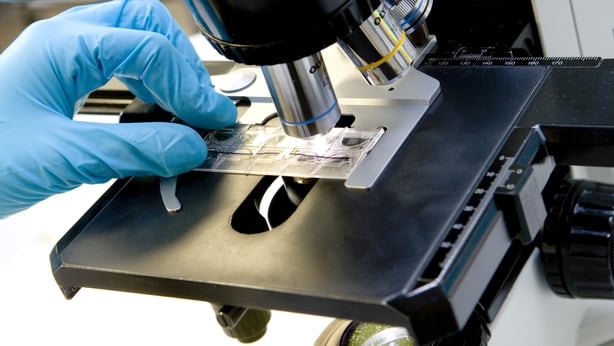When Vicky Phelan spoke on the steps of the High Court on 25 April last year, she opened a Pandora’s box of controversy around the cervical smear test programme, which the Government has still not been able to close.
The following day it emerged that other women who had been diagnosed with cervical cancer had previous test results reviewed and in many cases were not told. Widespread panic, and in many cases, misinformation and political opportunism followed.
The CervicalCheck programme itself has been vital to saving lives and the responsibility of the Government and the HSE at the time was to restore confidence in it so that women would continue to get screened.
Two resignations, one Scally report and nine months later, the controversy that the Government thought it had quelled has once again emerged. Women will wait to hear whether they are among the 6,000 who will have to get a repeat test.
The latest problem came to public attention in the Dáil on Wednesday when the Fianna Fáil leader raised concern that a large number of tests had been "rendered invalid, null and void".
Micheál Martin explained that there are two parts to a test. The first involves cells being put on a slide.
The second involves "viral loading", which happens after there is a detection of low-grade abnormalities and determines whether further investigation or a colposcopy is required.
The problem, he said, was in this second part of the testing.
The Taoiseach responded that he was aware that some tests had "expired", but could not say how many. He said some women had been informed and others had not.
In follow-up questions, a spokesperson for Minister for Health Simon Harris said that between April and October last year there was "only a 0.29% rate of expired samples and vials". This would have amounted to around 1,000 cases.
In his statement, the minister did leave open the prospect of another cohort, saying "there may be a number of cases where the vial used to contain the sample expires", but did not give an indication of how many were contained in this cohort.
It said it was was informed by one lab, Quest, in November that samples were being tested outside of the recommended time frame of 30 days.

Peter McKenna of the HSE said the labs started counting the 30 days from the day the smear arrived in the labs, rather than from the time the smear was taken in a clinic. He said he did not know how that had happened.
The Fianna Fáil leader claims the problem arose as a result of a decision last April to provide free smear tests to any woman who wanted one – regardless of whether they were due one or not.
This resulted in a backlog that has "compromised the quality and efficacy of the test", he said. The Government said this is a political charge.
It is true that the numbers receiving tests rose from around 250,000 in previous years to 350,000 last year. This resulted in delays of up to six months in receiving test results and 82,000 smears still being processed.
The secondary screening at the centre of the current problems was introduced in 2015 and the first time the HSE was informed by the labs of a problem with it was in November.
Asked whether the decision to offer a free smear was a contributory factor, Mr McKenna told RTÉ’s Morning Ireland: "When this unfolded, that would have been my assumption as well.
"The problem may have been exacerbated by that, but some of these cases go back for several years so the entire problem can’t be laid at that decision."
Questions remain as to why this only came to public attention after being raised in the Dáil on Wednesday.
The HSE has said it is different to what was previously reported about smears expiring. These issues were reported in the media last summer, but the issue referred to in its statement is the same one raised by Mr Martin in the Dáil on Wednesday.
Tánaiste Simon Coveney told the Dáil that the Minister for Health was made aware of the issue in December and it was discussed at the CervicalCheck steering committee.
He said the minister sought regular updates from the HSE but "a final report was not available to him in terms of the numbers involved or who they were".
He said that the minister did not have that information available to him until Thursday.
The minister himself appears to have passed the blame to the HSE for not communicating the scale of the problem to him.
Fianna Fáil has raised the prospect of the entire screening progamme itself being in jeopardy, saying it is operating in "crisis mode". The HSE has moved to reassure women that the latest measure is precautionary only.
Cervical Check already has 82,000 smears from last year yet to process. The HSE said the 6,000 retests will now be prioritised.
It is without a clinical lead since Graine Flannelly resigned last April after Minister Harris failed to express confidence in her.






